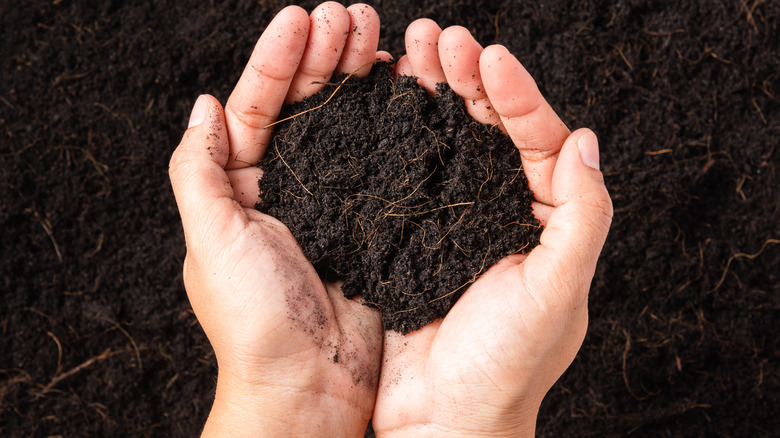Throwing Away Food Is Illegal In This City
In order to keep up with the expanding list of bizarre behaviors done by humans, there's been a number of state laws that have been introduced to help keep people in check. For example, in Alabama, officials have been forced to ban blindfolded driving, while in Louisiana it is considered harassment to deliver unwanted pizza, says Good Housekeeping – as if that would ever be a problem.
And over in Seattle, that city has made throwing away food a crime (via NPR). This is an extremely necessary decision to mitigate the horrors of otherwise watching someone throw away perfectly delicious ice cream — that's the stuff of nightmares.
But in all seriousness, there's a good reason for this particular mandate, which denotes that placing recyclable and compostable food waste into the garbage will incur a fine (per the City of Seattle website). Although it may seem like excessive control, officials have important environmental reasons for demanding compliance with these guidelines.
Residents will face a fine if they violate Seattle's food waste law
As detailed by CBS News, the food waste law was introduced to reduce the amount of garbage sent to landfills — it orders residents to sort their trash so that as much as possible can be recycled or composted. Commercial properties receive a $50 fine for each offense, whereas single family homes are hit with a $1 punishment — but do it enough times and that can add up.
Although the financial penalties seem slight, offenders suffer the greater cost of humiliation with neighbors as their trash cans are also labeled with glowing red tags that provide information about the rule to prevent it from happening again. Since instating the mandate, the City of Seattle website reports that 125,000 tons of food has been redistributed every year and turned into compost for community parks, which helps to benefit the community and reduce pollution.
The EPA also believes that Seattle's food waste approach has been successful, leading to recycling increases of 30.1% — and furthermore noting that trash reduction continues to improve as the population grows.

